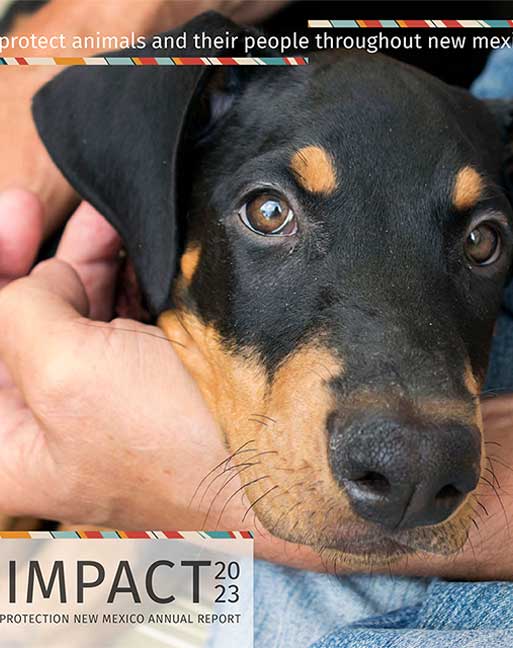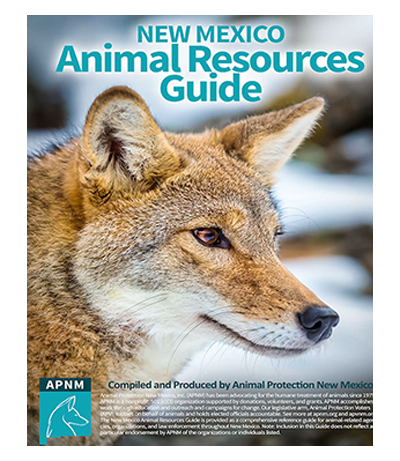Veterinary, Groomer or Boarding Kennel Complaints
If you have reason to believe your companion animal was injured or hurt while being vetted, groomed or boarded, the following action plan may help ensure the safety of your and other pets. Create a paper trail at each step and relate the facts of the case accurately and concisely. Re-read written letters of complaint to make sure the information is factual and the substance of the complaint is clear. Complaints could be ignored more easily if filled with inconsequential information that doesn’t merit investigation or action. (Some steps may occur simultaneously—for instance, you may phone the establishment while rushing your animal to a veterinarian).
Make contact with shop/clinic veterinarian/manager/owner and ask if anything happened while your animal was in their care. If your companion animal sustained an injury due to an accident, management should have documented the incident or should immediately question employees regarding the incident and should make those records or relevant information available to you immediately. If your animal sustained a legitimate injury to due an accident, they should want you to have all the information to ensure the safety of your pet through veterinary care, close monitoring, etc… Ask for a complete copy of your animal’s files, orally for immediate results, and, in writing. If they won’t provide them to you ask the authorities or your own attorney to subpoena them.
Remember, New Mexico is a one-party consent state, which means you can record a conversation as long as one party (you, for instance) knows that it’s being recorded. You must be present while the recording is made and you may not record someone who is in a state that is a two-party consent state.
If you have reason to believe the injury or trauma was not accidental or was accidental due to negligence, ignorance or carelessness:
Document all evidence
Vet report — ask a veterinarian to thoroughly examine your animal for injury and write a thorough veterinarian report about the animal’s condition including what was likely to cause it. If a vet tells you an injury was “….probably caused by blunt force trauma or strangulation…” for example, you must ask them to write it down. You may need to specifically request x-rays, blood-work, toxicology tests, neurological tests, etc., in order to document as much physical evidence as possible. Researching medical tests can help because blood and toxicology work can indicate high stress levels (as in an animal who has been traumatized) or unusual substances, for example. Request a copy of the vet report and any lab reports, as well as your pet’s medical records, and then make copies of each document. If your animal has died, you should request the same thing in the form of a necropsy (animal autopsy) by contacting, or, having a veterinarian contact, the NM Dept of Agriculture – NM Veterinary Diagnostic Services Lab at 700 Camino de Salud, PO Box 4700 Albuquerque, NM 87196-4700; Phone: 800-432-9110 or 505-841-2576 Fax: 505-841-2518 Cell: 505-301-6194. Business hours: Monday-Friday, 7:30 AM-4:30 PM; After-hours Cell: 505-220-4489.
Take photographs and/or video of visible injuries. Video may be very important if injuries are not visible but your pet is acting abnormally (limping, hiding, not able to hold head erect, etc). Photographs may turn out better in the bright lights of the veterinarian’s office, and photos/video can be taken in the home environment as well.
Write down an exact timeline of all contact with the veterinarian/grooming/boarding establishment throughout the process (from scheduling the appointment, dropping off animal, paying the bill, calling back to inquire about what may have happened, etc…). Note what was said, who said it, behavior of employee/s, presence of other employees, management or customers — anything you observed, heard or smelled in the business.
Keep a log of your pet’s behavior. Whether you think it’s normal or abnormal, each day, document the time and length of your animals’ behavior—i.e., “Monday 8:00 a.m. fed Fifi her normal breakfast of kibble mixed with canned food, she took one mouthful and lied by her bowl for 20 minutes (normally she eats the entire bowl in about 10 minutes), 9:00 a.m. Fifi ran and hid when a neighbor came in (normally she greets newcomers enthusiastically), Ms. Neighbor was wearing a blue jacket and carrying a piece of paper, after 15 minutes of coaxing, Fifi approached the neighbor shyly and tinkled when Ms. Neighbor picked her up….” Document all behavior, even if it occurs several weeks after the incident.
Keep a list of names and contact information of people who tell you of similar experiences — employees and/or other customers could provide a link from one shop/clinic to another or reveal similar cases.
Alert authorities
Contact your local police, sheriff or animal control department and provide them with a copy of all evidence (Keep originals unless they are requested and then retain exact copies. Document turning originals over with a signed and dated receipt to ensure the chain of custody is maintained). Be prepared to file and sign a criminal complaint—a police or animal control report may not be enough. In many situations charges cannot be filed by a police or animal control officer who did not witness the incident.
Discuss what the investigation will entail. Provide authorities with location of the shop/clinic/kennel, any information about employees or other customers who may have knowledge of this incident or others so that they can question or solicit information from each person. Ask if you need to participate in the investigation by getting signed affidavits from those involved and/or if they will be questioning those involved.
Discuss how the case may be charged. Many municipalities and counties have specific laws that prohibit cruelty and regulate grooming/boarding establishments. These are normally petty misdemeanor charges that involve limited fines, often without punitive or lasting consequences. Currently, there is no state law that regulates boarding/grooming establishments and most Veterinary Practice Acts do not address cruelty within the veterinary practice, though malpractice is addressed.
New Mexico has a state cruelty law (NMSA 30-18-1) that covers cruelty charges ranging from neglect or abandonment (a high misdemeanor) to intentionally or maliciously tormenting or killing (a fourth degree felony). Whenever possible, cruelty charges should be filed under the NM state law NMSA 30-18-1 rather than the local ordinance. A police report, not just an animal control report, needs to be filed when charging under NM state law so that the District Attorney’s office can evaluate the merit of the case and pursue prosecution if warranted.
When deciding how to charge the case, look at the interest of the animal control officer (ACO) or other investigating agent(s), as well as the district attorney. Most ACOs prosecute their own cases, which can be very good in areas where they have established a good history of being accurate and concise with the courts; however, a professional defense attorney will normally be enlisted to defend the vet/groomer/boarding kennel proprietor, which might mean even the best ACO will be outmatched in legal maneuvering.
If the DA’s office is willing to prosecute, they will be better equipped to present the case to the courts. City or county attorneys may also be enlisted to prosecute cases charged under local ordinances if the ACO is outmatched by a defense attorney and/or the DA’s office cannot take the case. Please keep in mind, currently in NM, some DA’s offices are so overburdened they only handle felony cases and do not handle misdemeanor cases at all — whether they involve people or animals.
Regardless of how the case is charged, employees having contact with the injured animal should have their records researched for previous cruelty charges or allegations — some may be part of other complaints involving human violence. In addition to establishing a pattern of conduct, in NM a fourth conviction of misdemeanor cruelty can be charged as a fourth degree felony.
The investigator should also subpoena personnel records that may prove a pattern of conduct from other complaints lodged in the past.
Be prepared to provide complete copies of the case file to a multitude of attorneys or investigators — many are reassigned during a lengthy case and you may have to start from square one over and over again;
Contact experts for statements or put authorities in touch with recognized experts who can testify or write affidavits about the conduct involved;
Ask experts to write sentencing recommendations to judges and prosecutors to ensure the appropriate punishment is meted out as well as to protect other animals from harm.
Alert official boards, trade associations or consumer protection divisions. For veterinary complaints, send a written complaint and request for investigation to: NM Board of Veterinary Medicine, 7301 Jefferson St. NE, Ste. H, Albuquerque, NM 87109, Voice (505) 553-7021, Fax (505) 553-7024 (this agency is appointed by the Governor).
You should also notify the NM Veterinary Medical Association, 60 Placitas Trails, Placitas, NM 87043 (505) 867-6373 ~ fax: (505) 771-8963, however the Vet Board is the entity with power to suspend or revoke a license.
Make sure you send all supporting documents or evidence (retain copies for your records) with your letter or complaint. Copying (“cc”ing) at least one other agency or official on any written complaint is a good idea to ensure appropriate and timely attention will be given to your concern.
File a complaint with the Better Business Bureau (https://www.bbb.org/en/us/local-bbb/bbb-serving-new-mexico-and-southwest-colorado, 2625 Pennsylvania NE, Suite 2050, Albuquerque, NM 87110-3658, Phone: (505) 346-0110, Fax: (505) 346-0696), or click here to find your local chamber). Outline the facts of the complaint and send it with supporting documents for their files. They will likely send you an official form to fill out summarizing the event. Copies may be to the business in question. Make sure you stick to the facts, and do not allege anything that you cannot prove or testify to in a court of law or you could be sued for libel, slander or defamation.
Send a similar letter and packet of information to the Consumer Protection Division of the Attorney General’s Office, and copy any relevant Boards and trade associations. In NM the address for the Attorney General’s Office is: Consumer Protection Division PO Drawer 1508 Santa Fe, NM 87504-1508. Or call: 1-800-678-1508 or 827-6060 in Santa Fe (For Veterinary Complaints also use the NM Board of Veterinary Medicine complaint form and follow instrucitions.)
Send a copy of the information and complaints to humane agencies or animal protection agencies in your area.
In the case of veterinary complaints, you can also file a malpractice suit, which will likely entail hiring an attorney.
Follow up all contact and correspondence with phone calls.




